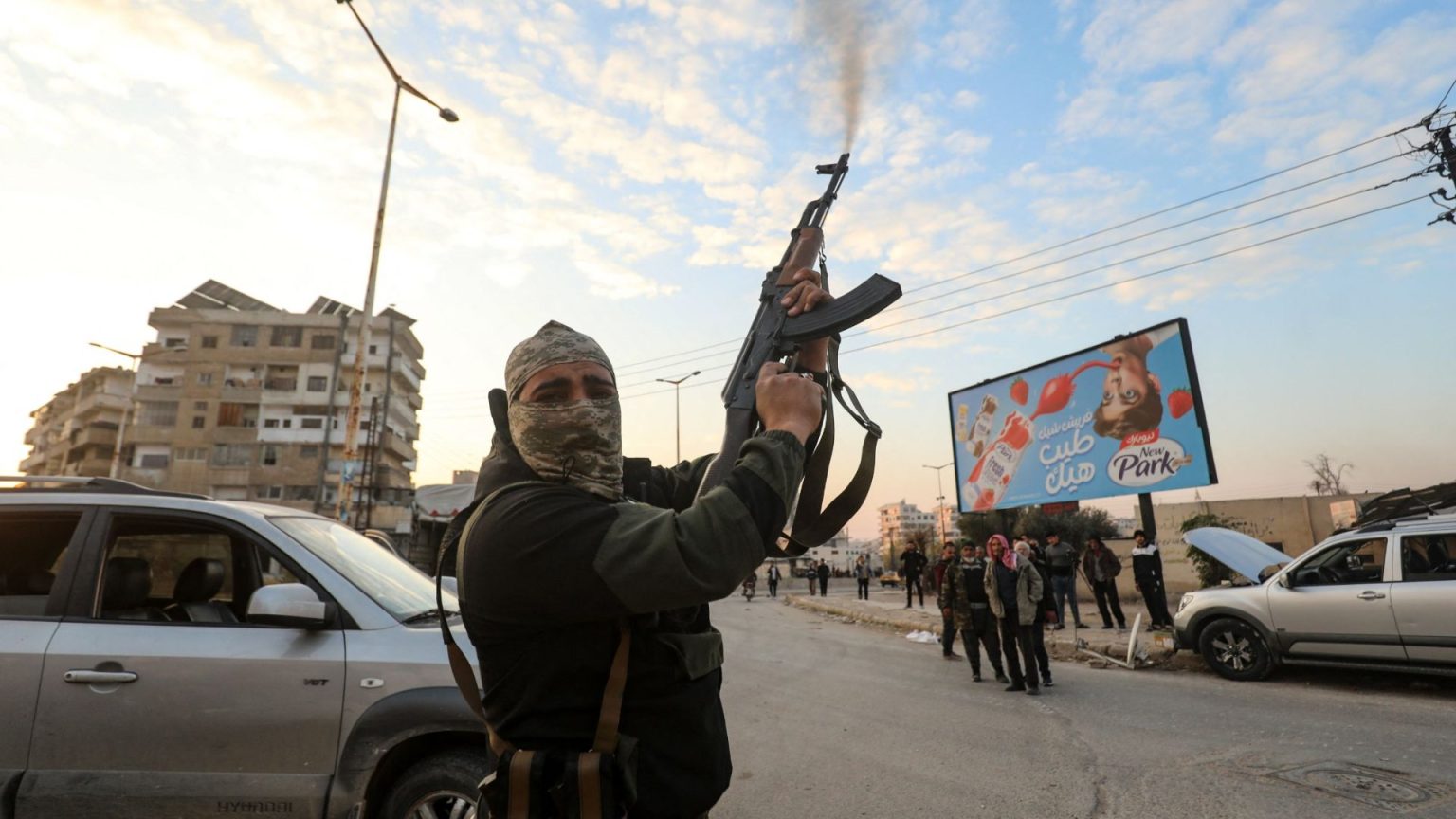Paragraph 1: The Crumbling Iranian Empire and the Syrian Uprising
Former US Ambassador Mark Wallace argues that Syria represents the latest crack in Iran’s weakening sphere of influence. Following the October 7th Hamas attack on Israel and the subsequent Israeli counteroffensive, Iran’s proxy network is facing unprecedented challenges. The rapid advance of Hayat Tahrir al-Sham (HTS) militants in Syria, capturing key cities like Hama, underscores the vulnerability of Bashar al-Assad’s regime and Iran’s diminished ability to support its allies. Wallace contends that Iran, grappling with internal economic struggles, corruption, and the fallout from the Israeli conflict, is now fighting for its survival, and the Ayatollah’s grip on power is tenuous.
Paragraph 2: Iran’s Proxies and the Syrian Opportunity
Iran’s strategy of utilizing proxy forces to exert regional dominance has backfired, leaving its allies vulnerable. The Syrian rebels, recognizing both Assad’s and Iran’s weaknesses, seized the opportunity to launch an offensive. As each Iranian proxy falters, the regime’s ideology and the Ayatollah’s authority are further undermined, potentially emboldening dissent within Iran itself. However, the potential overthrow of Assad also presents a dangerous scenario, with the risk of an "Islamic state" replacing the current regime. HTS, with its roots in ISIS and al-Qaeda, raises concerns about the future of human rights in Syria.
Paragraph 3: The Complexities of the Syrian Conflict and Turkey’s Role
While the weakening of Iranian influence in Syria might be seen as positive, the involvement of Turkey complicates the situation. Turkey’s support for HTS raises questions about its role as a NATO ally, with Wallace even calling for Turkey’s expulsion from the alliance. He argues that Turkey’s actions, including its support for HTS, do not align with the values and principles of NATO. The West faces a delicate balancing act – needing Turkey as an ally against Russia while simultaneously discouraging the support of extremist groups.
Paragraph 4: A Call for Western Intervention and the Future of Iran
Ambassador Wallace advocates for direct Western confrontation with a weakened Iran, aiming to precipitate a succession crisis within the regime. He believes that the transition to a third Ayatollah could be a pivotal moment, potentially leading to the downfall of the current Iranian system and greater freedom for the Iranian people. Meanwhile, Iran has pledged to send military support to Assad, including missiles, drones, and advisors, in a desperate attempt to bolster its crumbling ally.
Paragraph 5: The Unexpected Offensive and Russia’s Dilemma
The sudden resurgence of fighting in Syria, despite a 2020 ceasefire, caught many by surprise, including Russia. Former military intelligence officer Philip Ingram suggests that Putin’s focus on Ukraine diverted attention from the escalating situation in Syria. The poor response from Assad’s forces, backed by Russia and Iran, further highlights the unpreparedness. While Russia’s air support provides some assistance, its resources are stretched thin due to the ongoing conflict in Ukraine, limiting Putin’s ability to effectively intervene in Syria. Despite this, Syria remains a strategically important asset for Russia, providing a foothold in the Middle East and valuable intelligence capabilities.
Paragraph 6: The Rise of HTS and its Dark History
HTS, the driving force behind the rebel offensive, is a Sunni Muslim movement with a complex and troubling background. Evolving from Jabhat al-Nusra and with ties to al-Qaeda and ISIS, HTS has a history of human rights abuses, including the forced sexual slavery and trafficking of women and girls. While HTS has attempted to distance itself from these extremist roots, concerns remain about its ideology and potential for future abuses. The group’s advance poses a significant challenge to Assad and highlights the precarious nature of the Syrian conflict, with the potential for further instability and humanitarian crises. Turkey’s support for HTS further complicates the situation, raising questions about its long-term goals in the region, particularly concerning the Kurdish population.


